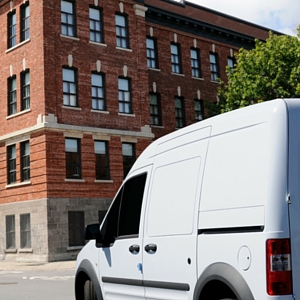Let's Talk Business Autos

Are commercial vehicles critical to the success of your business? If so, you need to make sure you have the proper coverage on those vehicles to avoid a catastrophic loss if one of your employees causes an accident.
Why a Personal Auto Policy Won't Do the Job
If the vehicles your company uses are tractor-trailers or busses, you probably don't question the need for business auto insurance, but if you own a flower shop and your employees drive a van to deliver flowers, you might think a personal auto policy will cover your losses in an accident. This could lead to an unpleasant surprise if the driver has an at-fault accident. Even though the delivery vehicle is a van, it might not be covered under a personal auto policy because it is used for delivering commercial goods. This is not what you want to hear when a claim is being made, especially if that claim involves injuries to another party.
It's even trickier when it comes to cars that employees drive as a part of their job. For instance, if one of your sales reps is driving a company vehicle and causes an accident with injuries, the injured parties may sue your business for any damages that go above and beyond the policy limits a personal auto policy would provide. In either of these scenarios, you are putting your business at risk of financial hardship.
Business auto liability insurance for vehicles is generally required by most states because it might carry higher liability limits, which can help you protect your business from a catastrophic loss. It might go beyond coverage for damage to the vehicle itself to include some coverage for passengers or certain equipment you might be hauling, and may take coverage even further to include rented vehicles, trailers and vehicles your company doesn't own but are being used by your business under your supervision. This is coverage a personal auto policy generally won't provide.
Blurred Lines: Ride Sharing Services
Ride Sharing services are popping up in metropolitan areas as an alternative to taxi services, and insurance coverage is a highly debated issue right now. You may have heard of some of the more well-known providers of this service—Uber, Lyft and Sidecar. The idea is simple: download their app and sign up for the service. When you need a ride, pull up the app and it will tell you how close the nearest driver is who can give you a ride. The drivers are private citizens using their own vehicles, and they are paid by the company. When you sign up for the service, they keep your credit card information on file, so no money is exchanged between the driver and passenger.
Drivers for these services might think that because they are using their personal vehicles, their personal auto policy would apply if they are in an at-fault accident while transporting passengers. However, this is likely not the case. If you are interested in being a driver for one of these services, talk to your insurance agent first to ask about what type of policy you may need.
A good rule of thumb is to talk to your local Shelter agent about any vehicles you use for your business. After all, an ounce of prevention is worth a pound of cure!
